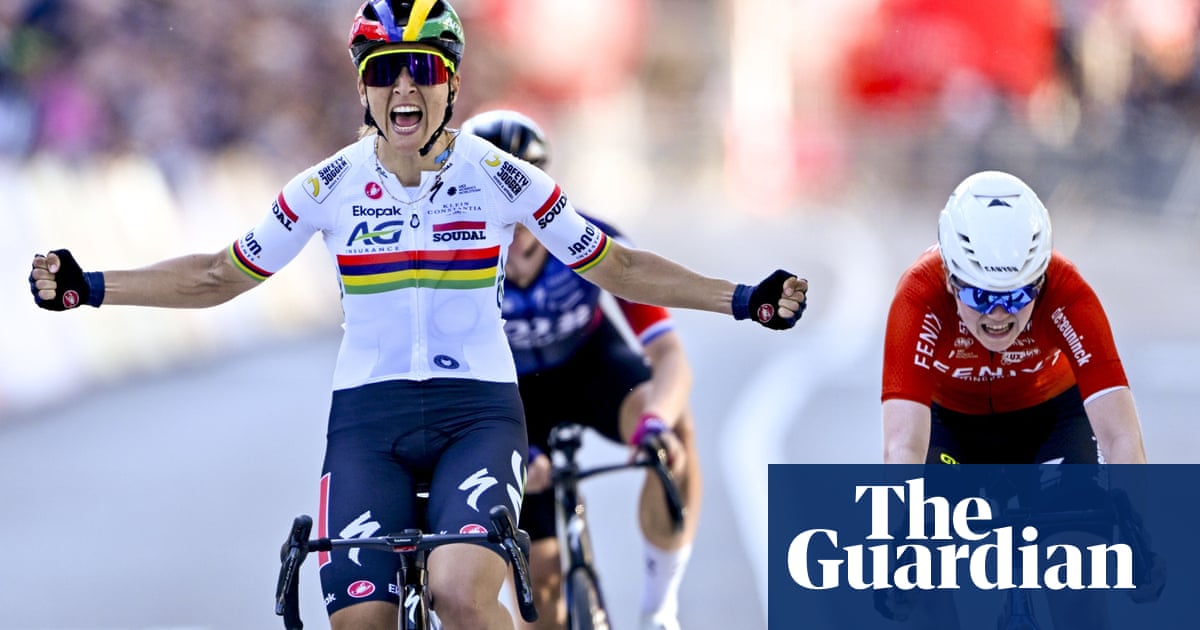Tadej Pogacar launched one of his trademark uphill attacks to win the Liège–Bastogne–Liège classic race for the third time on Sunday.The defending champion made his move some 35 kilometers (22 miles) from the end of the undulating 252km (156 mile) trek to open up a gap of 10 seconds at the top, and then kept increasing it all the way to the line.
It was his third victory overall at the spring classic race, which is also one of the five “monuments” in one-day cycling along with Paris-Roubaix on the cobbles, the Tour of Lombardy, Milan-San Remo and the Tour of Flanders. Pogacar now has nine “monument” victories.The Slovenian was so far ahead Sunday that he even had time to turn and smile at the roadside camera filming him, then touched hands with fans near the finish before raising his arms in the air with victory assured.Pogacar won in just over six hours and finished one minute, three seconds ahead of Italian Giulio Ciccone in second and Irishman Ben Healy in third. Ciccone and Healy contested a sprint to the line for second place.In decent racing conditions, Pogacar’s UAE Team-Emirates teammates increased the speed at the front of the main pack and the peloton caught a small group of front-runners with 60 kilometers to go, and with the main favourites still in contention.But when Pogačar surged ahead on the Côte de La Redoute climb, no rider could follow him. It was a similar story to Wednesday, when Pogacar launched a trademark uphill attack to win the Flèche Wallonne classic for the second time.
It was a disappointing race for the two-time champion, Remco Evenepoel, as the Belgian rider was dropped by Pogacar up the Redoute climb. Evenepoel could not gain any time back and instead dropped down to finish in 59th place, 3min 11sec behind Pogačar.
The Mauritian rider Kim Le Court won the women’s race for the first time as four riders contested a sprint finish.The 2023 champion, Demi Vollering, attacked first but Le Court countered her and then held off Dutch rider Puck Pieterse, who won the Flèche Wallonne classic on Wednesday.Pieterse finished second ahead of compatriot Vollering and French rider Cédrine Kerbaol in fourth. The four riders completed the 152.9km (94.8 mile) route in four hours, 15 minutes and 42 seconds. It was the first classics win for the 29-year-old Le Court.Kerbaol broke ahead near the end and led by 14 seconds with 11 kilometers left and threatened to extend her advantage, but Pieterse went after her. The world road race champion, Lotte Kopecky of Belgium, could not follow and cracked in the final climb up Roche-aux-Faucons.But Pieterse, Vollering and Le Court caught Kerbaol with a few kilometers remaining to make it a four-way sprint finish. Kopecky rolled in fifth, 24 seconds behind.
